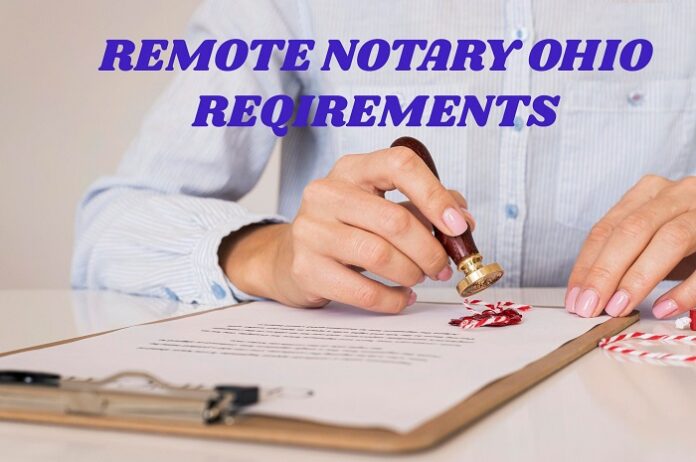When it comes to safe, legal, and time-saving remote notarizations, digital notaries in Ohio are indispensable. They ensure compliance with Ohio’s legal standards for digital notarial actions, authenticate signatures, and validate documents. To guarantee the safety, legitimacy, and conformity of virtual notarial actions, Ohio’s legal system has laid down clear guidelines within which remote notarization may function. Remote notarizations are defined and required under Ohio Revised Code Section 147.57. The need for authenticating signatories is important to Ohio’s legal system. Verification of the signatory’s identification by trustworthy techniques, including knowledge-based authentication questions or credential analysis, is necessary before a notary may execute a remote notarization. To keep the remote notarization process secure and reduce the possibility of fraud, this rigorous authentication procedure is essential. Check outhttps://onenotary.us/online-notary-ohio/ for more information on the services that certified online notaries in Ohio may provide.
Review of documents and notarial act
A comprehensive examination of the papers offered for notarization is one of the legal criteria in Ohio for remote notarization. To verify the electronic document’s legitimacy and completeness, the notary must visually examine it. Furthermore, it is required that the notary maintain direct and simultaneous contact with the signatory during the whole of the notarial act, as stated in Ohio Administrative Code 109:1-6-01. Like an in-person notarization, this real-time video conferencing makes sure that the notary and signatory can understand each other. After reviewing the documents, the notary continues with the notarial act according to Ohio law’s special criteria for acknowledgments or jurats. To comply with Ohio’s record-keeping requirements, it is essential that the notary properly records the notarial act, including the date, time, and mode of communication.
Document management and electronic notarial certificates
The creation of electronic notarial certificates is a necessary component of remote notarization as per Ohio law. By digitally signing and sealing the document, the notary verifies that the notarial operation is complete. An electronic notarial certificate contains all the necessary information, including:
- the notary’s and signatory’s identities;
- the time and date of the notarization;
- the means of communication.
It is essential in proving the document’s legitimacy and conformity with Ohio’s notarial requirements. There should be a ten-year retention term for both the electronic notarial certificate and the related electronic record of the notarization, according to the Ohio Secretary of State. Careful documentation is required in accordance with Ohio law for remote notarization in order to maintain the notarial act’s evidential value and to guarantee accountability.
Moreover, by requiring authentication, document scrutiny, and meticulous record-keeping, Ohio’s regulatory standards for remote notarization provide a strong and safe foundation. The thorough examination of documents during virtual contacts and the rigorous authentication procedures demonstrate the state’s dedication to preserving the notarial act. These legislative criteria provide the groundwork for notaries and signatories in Ohio, encouraging confidence in digital notarization while maintaining compliance standards and legality, as the state continues to adopt remote notarization.
Image by Freepik





